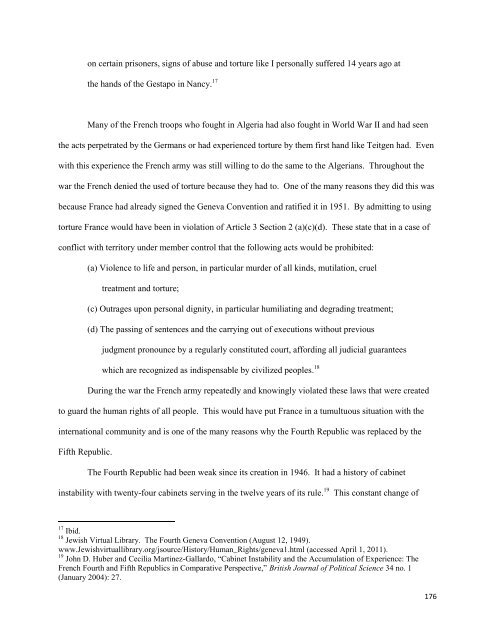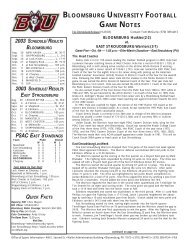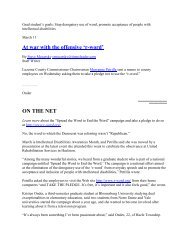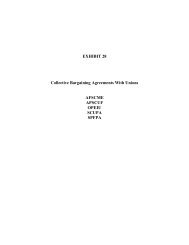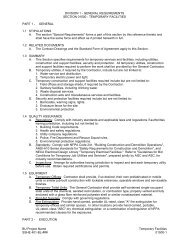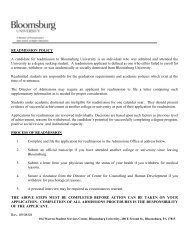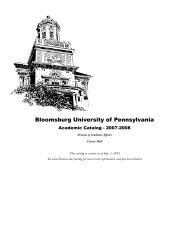Human Rights at Home and Abroad: Past, Present, and Future
Human Rights at Home and Abroad: Past, Present, and Future
Human Rights at Home and Abroad: Past, Present, and Future
Create successful ePaper yourself
Turn your PDF publications into a flip-book with our unique Google optimized e-Paper software.
on certain prisoners, signs of abuse <strong>and</strong> torture like I personally suffered 14 years ago <strong>at</strong><br />
the h<strong>and</strong>s of the Gestapo in Nancy. 17<br />
Many of the French troops who fought in Algeria had also fought in World War II <strong>and</strong> had seen<br />
the acts perpetr<strong>at</strong>ed by the Germans or had experienced torture by them first h<strong>and</strong> like Teitgen had. Even<br />
with this experience the French army was still willing to do the same to the Algerians. Throughout the<br />
war the French denied the used of torture because they had to. One of the many reasons they did this was<br />
because France had already signed the Geneva Convention <strong>and</strong> r<strong>at</strong>ified it in 1951. By admitting to using<br />
torture France would have been in viol<strong>at</strong>ion of Article 3 Section 2 (a)(c)(d). These st<strong>at</strong>e th<strong>at</strong> in a case of<br />
conflict with territory under member control th<strong>at</strong> the following acts would be prohibited:<br />
(a) Violence to life <strong>and</strong> person, in particular murder of all kinds, mutil<strong>at</strong>ion, cruel<br />
tre<strong>at</strong>ment <strong>and</strong> torture;<br />
(c) Outrages upon personal dignity, in particular humili<strong>at</strong>ing <strong>and</strong> degrading tre<strong>at</strong>ment;<br />
(d) The passing of sentences <strong>and</strong> the carrying out of executions without previous<br />
judgment pronounce by a regularly constituted court, affording all judicial guarantees<br />
which are recognized as indispensable by civilized peoples. 18<br />
During the war the French army repe<strong>at</strong>edly <strong>and</strong> knowingly viol<strong>at</strong>ed these laws th<strong>at</strong> were cre<strong>at</strong>ed<br />
to guard the human rights of all people. This would have put France in a tumultuous situ<strong>at</strong>ion with the<br />
intern<strong>at</strong>ional community <strong>and</strong> is one of the many reasons why the Fourth Republic was replaced by the<br />
Fifth Republic.<br />
The Fourth Republic had been weak since its cre<strong>at</strong>ion in 1946. It had a history of cabinet<br />
instability with twenty-four cabinets serving in the twelve years of its rule. 19 This constant change of<br />
17 Ibid.<br />
18 Jewish Virtual Library. The Fourth Geneva Convention (August 12, 1949).<br />
www.Jewishvirtuallibrary.org/jsource/History/<strong>Human</strong>_<strong>Rights</strong>/geneva1.html (accessed April 1, 2011).<br />
19 John D. Huber <strong>and</strong> Cecilia Martinez-Gallardo, ―Cabinet Instability <strong>and</strong> the Accumul<strong>at</strong>ion of Experience: The<br />
French Fourth <strong>and</strong> Fifth Republics in Compar<strong>at</strong>ive Perspective,‖ British Journal of Political Science 34 no. 1<br />
(January 2004): 27.<br />
176


